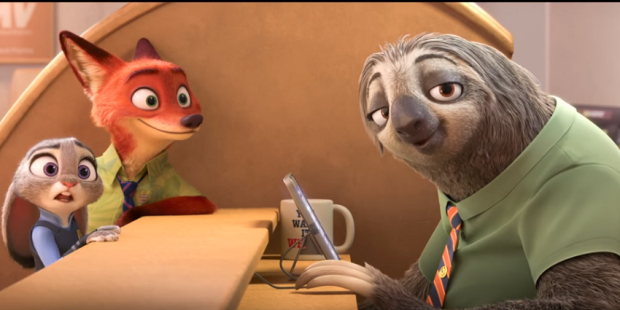Here they are folks, in no particular order, the top 25 scripts from my contest. Congrats to to the finalists. I’ll be announcing the Top 5 in a couple of weeks. If you didn’t make it, don’t fret. That next script could be the one. Keep fighting!
Title: Albion
Genre: Period
Logline: The Dark Ages, 865AD, Britain: A sheltered scholar must unite his people and defeat the Viking invasions to become the first King of England: King Alfred the Great.
Writer: Blaise Hesselgren
Title: Fourth Time’s a Charm
Genre: Comedy
Logline: Tom is a thrice-divorced marriage therapist seemingly destined to repeat a Sisyphean cycle of superficial romances. But when a blind date with an uncouth woman named “Angus” highlights everything missing from his past courtships, Tom must choose between perpetuating his hollow past, or taking a walk on the wild side. The thing is, Angus might not give him a choice.
Writer: Steve Dente
(obviously submitted long before this year’s Oscars)
Title: Bait
Genre: Dark Comedy
Logline: When Leonardo DiCaprio believes he’s finally found the script that will win him an Oscar, he travels in secret to visit the unknown writer. What he finds instead is a serial killer, who keeps him captive with a group of other A-list victims, all tempted by the same script. Will Leo escape and, more importantly, will he get to make the movie?
Writer: Sam Boyer
Title: 19 Floors
Genre: Action/Horror
Logline: Against military orders, a Special Ops Sargent attempts to rescue his wife from a quarantined tower infested with monstrous creatures. He has 19 floors and 19 hours.
Writer: Lee Brandt & Christopher Lawrence
Title: This Close
Genre: Drama
Logline: Jeremy Pearl intends to shoot up his high school and take his own life. He comes ‘this close’ to proceeding, but the plot is thwarted before he can act. Seven years later, after coming out of prison a repentant man, Jeremy returns to his hometown to try to make a normal life for himself.
Writer: Randy Steinberg
Title: Drone
Genre: Action
Logline: A drone pilot in the Mojave Desert begins to question his strike orders when evidence begins to pile up of a government conspiracy to inflame tensions in the Middle East.
Writer: Justin Perry
Title: Jack Curious
Genre: Sci-fi
Logline: A legendary but drug-addicted cop tries to solve a murder using time travel.
Writer: Bryce McLellan
Title: Serpentine
Genre: Horror/Thriller
Logline: Upon realising she is reliving the last day of her life, an injured SWAT officer must protect her family from the dangerous cult that want them dead.
Writer: Paul White
Title: Lies, Blackmail, and other Egregious Behavior
Genre: Dark Comedy
Logline: When Sarah, a strong willed Pastor’s wife thinks her husband is cheating on her, she enlists the help of a charming young man to find out. When he catches the pastor cheating, he blackmails him behind Sarah’s back.
Writer: Aaron Brooks
Title: Disorder
Genre: Psychological Thriller
Logline: A recluse who suffers from random episodes – in which he commits violent acts without remembering them – is forced to babysit a neighbour’s 8 year-old daughter for an afternoon. After suffering an episode, he wakes to find the girl has disappeared – a violent wreck in her wake. With himself as the only possible suspect, he must retrace his footsteps to find the girl.
Writer: Zed Warren
Title: Flyuxaphine
Genre: Horror
Logline: Seen through the eyes of a mechanic as he makes his way through a Terraforming facility, with the help of his girlfriend by headset, after a malfunction has turned the crew mad.
Writer: Ellis Ripley
Title: The Passage
Genre: Adventure/Fantasy
Logline: Back in small-town Maine to bury his estranged father, a young man discovers the drawbridge his family tended is a gateway to the afterlife for spirits lost at sea. After a historic ghost ship wrecks on his watch, he and a few friends new and old must find passage for one of its crew before a malevolent spirit aboard can get in their way.
Writer: Paul Marchant
Title: Wars of Eternal Spring
Genre: Martial Arts/Period
Logline: A rebellious-minded woman in ancient China seeks the help of Shaolin Temple to save her family and village from a love-obsessed General and his bloodthirsty Captain.
Writer: Elizabet Barilleaux
Title: Wheelman
Genre: Thriller
Logline: An ex-con reconnecting with his fourteen-year-old daughter is forced to take a job as a getaway-driver to pay off prison debts when he gets hijacked mid bank-robbery by a mysterious caller who threatens his family.
Writer: Jeremy Rush
Title: Ghosts of Dickens
Genre: Biopic
Logline: Crushed by financial burden, evaporating success and increasing depression, Charles Dickens struggles to piece together A CHRISTMAS CAROL to regain his fleeting fame.
Writer: Matt Bishop
Title: The Coyote
Genre: Action/Thriller
Logline: An ex DEA agent turned Coyote is blackmailed to take on his toughest job yet; smuggling the man who killed his partner across the Mexican border.
Writer: Nir Paniry
Title: A Quickening
Genre: Drama/Thriller
Logline: A woman working as a surrogate for a powerful New York couple gets treated like dirty laundry, until the couple’s marriage falls apart and they ask her to abort the pregnancy, leading her to turn the tables on them and blackmail her way to the American dream.
Writer: Jacob Albert
Title: Seventy Times in Black
Genre: Crime Thriller
Logline: In the jungle-like heart of Arkansas, a resourceful young woman’s coming-of-age tale makes a terrifying descent into survival. Stripped bare by her own paralyzing fears, she must confront the deranged, familial obsessions of a rogue lawman, whose unchecked savagery threatens everyone close to her.
Writers: Kyle Rynicki & John Rodgers
Title: The Man Who Killed Samuel Lodge
Genre: Western
Logline: As a gang of outlaws chases him, a lawman with a mysterious past reluctantly partners with a headstrong widow so he can cash in the bounty for the man he killed.
Writer: Zac Lovelace
Title: Miss Universe
Genre: Comedy
Logline: A vapid beauty queen is abducted by aliens who think her title means she’s Earth’s ambassador to the universe.
Writer: Colin O’Brien
Title: The Watcher
Genre: Thriller
Logline: A middle-aged voyeur named Roman Powell witnesses his new tenant, young Jane Gordon, commit a grisly murder and struggles through his own urges of going down the evil path by being drawn into the murders himself.
Writer: Michael J. Klassen
Title: Liberty Island
Genre: Action
Logline: When domestic terrorists seize control of Liberty Island during July 4th celebrations and threaten to blow up the Statue of Liberty, a lone New York City cop trapped on the island must save his hostage-held family and foil a presidential assassination.
Writer: Jared Sandman
Title: The Pyre
Genre: Horror
Logline: A fragile young mother has three days to get the body of the immigrant she killed from the bottom of a deep dangerous lake and cremate it on a pyre, before its spirit destroys her.
Writer: Caroline Carver
Title: The Nothing Man
Genre: Action/Thriller
Logline: A secret Government crime solving division clones America’s most wanted criminal to be able to get into his mind and his memories to predict his future actions while being teamed up with the FBI Agent who has been hunting him for years.
Writer: Brian Penn
Title: Yesterday
Genre: Sci-fi
Logline: Randy had it all–a loving family, a dream job. But after a long, hard fall from grace leads to deadly consequences, he’s forced to relive his life backwards. Yesterday by yesterday, Randy tries to understand where it all went wrong, and how he can possibly put things right in a world where tomorrow never comes.
Writer: John Bradley
We’re almost there, my friends. And I have to say, this has been one crazy journey. At times frustrating, at other times maddening, but ultimately, it’s been incredibly rewarding. As I transition into the producing side of things, I expect these writers to be the collaborators who help me cross over. I’m sure you’re wondering what kind of scripts got through? Well, for the top 15, it was easy. There was no doubt in my mind with these scripts. From there, things got a little tougher. I’d have to make judgment calls that weren’t easy. Some scripts had great concepts, but the execution wasn’t there. Some had solid execution, but the concept wasn’t marketable. There was one script with a concept so amazing, but whose execution was just average, that I agonized over for days. I suppose these are the same thoughts that go through producers’ minds all the time. Weighing the pros and the cons. What I’m most excited about, however, is these writers. I know that all of them, regardless of whether these specific scripts do well on the market, have a future in this business if they want it. I’ve been on the phone with agents and managers getting them psyched up for these new potential clients, so the opportunity will be there for them. I can’t wait to see what’s next. Good luck to all!!!
I will be announcing the TOP 25 scripts from my contest this Wednesday!
And as we get closer to the big day where worlds will be moved, lives will be changed, I can offer some thoughts on the process, a process that has given me even more insight into the system than ever before. The biggest takeaway I’ve gotten so far? That it takes a long time to get this craft right. Almost inevitably (with a few exceptions), when I like a script and go back to read the writer’s pitch e-mail, I see it mentioned that the writer has been at this for 7 years or 8 years or 9 years. Screenwriting, unlike any other form of writing, has a mathematical component. You’re supposed to hit beats by certain pages, divide things up into acts, keep the script under a certain page count. To get used to that restriction – to be able to write freely within those guideline – takes time and practice. And you can feel it on the page. You can feel that ease, that lack of fear. With new writers, they’re mostly just writing whatever comes to mind at the time. Filling up pages, hoping to have enough before they write “The End.” The stories feel unformed, random, like we’re on a bus ride to nowhere. This doesn’t mean you’re screwed if you’re new to this. But if you’re going to compete with these people, you’re going to need to work a hell of a lot harder. READ, STUDY, WRITE. That needs to be your life. READ, STUDY, WRITE. If you’re not doing one of those three things, you’re not catching up to the people who have been doing this so much longer than you have.
TWO DAYS LEFT!
Today’s GUEST ARTICLE comes from stellar long-time contributor MulesandMud, who often offers the best advice on the board. Even I get jealous of his vast knowledge at times. Since some of you have been asking what the hell treatments are and how to write them, Mules has kindly offered to write a guest article about the elusive little buggers. Hope you enjoy it!
I know some of you think that loglines are the ugly babies of the screenwriting world, but a logline is an adorable toddler compared to the deformed, puberty-stricken creature that is a film treatment.
A treatment is by definition incomplete, even moreso than a screenplay. It’s a work in progress, an idea on its way to becoming a script (which in turn is on its way to becoming a movie).
That’s the reason that treatments are so much harder to find than screenplays. Most writers have no desire to show their treatments to anyone. They are almost always ungainly and imperfect documents, so seeing one is a peek behind the curtain of a writer’s process.
And as you all know, it’s not very pretty back there.
Still, whether we like treatments or not, a pro scribe needs to know how to write them, full stop. Anyone who claims to have a screenwriting career that doesn’t require treatment-writing is either lying or living a charmed life that has no relevance to the rest of us.
So, with that in mind…
WHAT IS A TREATMENT?
Like a lot of film industry jargon, the term “treatment” is intentionally ambiguous, so that important people can toss the word around without quite knowing what it means.
To understand what a treatment is, it’s helpful to understand it in the context of other story-building documents often used in the development process. Here’s a quick and not-at-all-comprehensive list:
BEAT SHEET – This is exactly what it sounds like, a list of the major story beats. That list might be just a series simple words or phrases at first, and rarely exceeds a page.
STEP OUTLINE – This is also essentially a list, only more elaborate, charting out each individual scene of your script with descriptions for each entry, often detailing things like locations, characters present, and dramatic or thematic developments.
SYNOPSIS – This is a short prose description of your story. It typically ranges from one to five pages in length. Depending on the size and the purpose of the document, it might also be called a SUMMARY or ONE-PAGER (hint: don’t call it a one-pager if it’s three pages long).
TREATMENT – This is a longer and more comprehensive prose version of your script, normally around 10 to 30 pages long; the level of detail varies accordingly. As with step outlines, longer treatments may attempt to detail each individual scene. The longest ones might also include lines of dialogue or scene headings, at which point the document is probably more of a SCRIPTMENT, a hybrid of prose and screenplay formatting.
Now, you’re likely to hear all of the above terms used vaguely or interchangeably. And to make things especially confusing, the word OUTLINE can be used to refer to any or all of the above. Don’t go crazy over the semantics, just try to be consistent about what you refer to as what.
Also, never be afraid to ask for clarification when someone requests a particular type of document from you. To paraphrase a great swordsman, they might not think it means what you think it means.
When asked to write a treatment/outline/whatever, your smartest move is to ask the asker to send you a sample treatment/outline/whatever that they’ve received in the past, to show you exactly what format they’re looking for.
Framed properly, this request won’t sound amateurish, it’ll prove you’re a pro who knows how unreliable these terms can be. Plus, it might give you a chance to see another writer’s treatment, which is always interesting.
WHEN TO WRITE A TREATMENT
Almost without exception, treatments are written early in the development process, before you start writing the actual script. If a producer asks you to write a treatment or outline for an existing script, they probably mean a synopsis (see above).
Here, we need to understand that there are two very different reasons why you might write a treatment:
1.) Because you find treatments useful for your own story development.
In this case, the treatment is a WORKING DOCUMENT, a writing tool for the eyes of you and your collaborators. This is a purely optional tool, and its value depends on each person’s individual writing process.
Personally, I tend to create all sorts of outline- and treatment-type documents before beginning a script. I’ve also been known to make look books, research binders, etc, plus unique documents tailored each project (e.g., for a TV pilot I made an elaborate family tree mapping the genealogies of my characters; for a contained horror script I used drafting software to mock up a small town police station).
Again, this is a completely optional version of a treatment, whereas the second reason makes a treatment trickier, if not impossible, to avoid.
2.) Because someone asks you for a treatment.
In this case, the treatment is a PITCH DOCUMENT, a selling tool designed to convince someone else that your story would make a great movie. Most often, a producer or exec will request one of these after a pitch meeting or development conversation.
This kind of treatment (or outline, or synopsis, etc…see above) is inevitable; sooner or later, someone will ask you for one. I’ve done a couple dozen of these over the years, both for ideas of my own and for ideas pitched to me by producers or execs. A few have gotten me paid in one way or another, but most of them haven’t. That’s the nature of the beast.
It’s important to note here that good treatments take serious time and effort.
Most folks who ask you for a treatment won’t want to pay for it, even though they realize it’s a lot to ask. In my opinion, once a tight treatment has been written, all of the hardest parts of the screenwriting process have essentially been done. You need to think long and hard about whether the project in question is worth that kind of commitment.
It may be seem worthwhile to write a treatment for a concept that a manager or producer has sent your way, even just for the sake of building a relationship. Depending on the situation, that may be true, especially for an unproven writer looking for industry access or representation.
However, make sure you don’t go in blind. Do your best to understand who you’re getting involved with, and what the realistic prospects are for the project.
HOW TO WRITE A TREATMENT
This bring us back to the distinction between a WORKING DOCUMENT and a PITCH DOCUMENT. That is, a treatment you write for yourself vs. one you write for someone else.
Though we could call both of these documents treatments, they have nearly opposite goals.
What’s the difference? In short, BULLSHIT.
When you write a working treatment, bullshit is your enemy.
Here, you need to be brutally honest with yourself. Lay your story out in graphic, unsexy detail, leaving nothing out. Identify all of its flaws. Make its weak points clearly visible. Figure out which beats you’ve left half-considered and which ones you may have overthought.
This way, when it comes time to write the script, you have solutions in mind, or at least a firm grasp of the problems. Otherwise, why bother?
On the other hand, when you write a pitch treatment, bullshit is your friend.
Let’s say a producer or exec was intrigued by your pitch, and is now asking for a treatment to see if your idea can go the distance. The document you present may decide whether or not you make a sale.
That means you need to bring the sexy in a big way.
You probably won’t know every detail of your story, but the treatment needs to read like you do. You’ll need to gloss over plot gaps or character issues, hiding any problems you haven’t solved yet (fact: no matter how much work you do, there will always be problems left to solve).
The treatment needs to be paced right, giving enough specifics to suggest that you know what you’re talking about, but not so much that it gets bogged down in a rushed list of plot and scene ingredients. Don’t try to cram everything in there: for the sake of clarity and rhythm, you’ll have to leave some things out.
These pages need to read like a movie, in some ways even more smoothly and cinematically than a screenplay does.
Most importantly, the treatment needs to nail the tone of your story. It can’t be just a list of characters and scenes. You need to get your script’s personality across. Give the thing a little sizzle, as they say.
The good news, sort of, is that you basically have to write a version of this document anyway as preparation for a good verbal pitch, which normally amounts to a 10-minute monologue in which you, the writer, introduce your concept and walk listeners through the entire story, hopefully without boring the hell out of anyone.
In most ways, a great pitch treatment reads exactly like a great verbal pitch sounds: as though someone were telling you the story a film so well that by the end it felt like you’d just watched the actual movie.
If that sounds hard, well, it is. Most treatments, even by great writers, tend to be boring reads, more functional than entertaining. In some ways, treatment writing is harder than scriptwriting, since you’re forced to accomplish a screenplay’s worth of story in just a fraction of the words.
Finally, a quick word on treatment length:
For a working treatment, the longer the better. That doesn’t mean pad the thing unnecessarily; it means make an effort to get everything relevant down on paper, without prejudice. There’s no such thing as too much information here. It’s all grist for the mill of the actual screenplay.
For a pitch treatment, less is more. Try to keep things short, around 15 pages, otherwise the treatment may get bogged down in minutiae. This may sound like less work than the longer version, but in my experience, it’s actually more work, since you usually have to write it all before you know what you can omit. Especially with complex genre plots, paring down a verbal pitch or treatment to a streamlined length can feel impossible at times.
As I mentioned yesterday, I’m not posting anything this week due to Scriptshadow 250 Contest duties (FINALLY finishing all the scripts!). But I haven’t forgotten about you guys. Here’s the deal. Today is a day for you to share your loglines, pages, entire scripts, whatever, and get feedback from your peers. But there’s a bonus! “Bonus, you say, Carson? Whatever could this bonus be?” Whichever idea or pages get the most up-votes in the comments section, I will read and give notes on the first ten pages of your script. So the challenge is on. If you don’t win, you can always hire me for a full consultation. So all is not lost!






